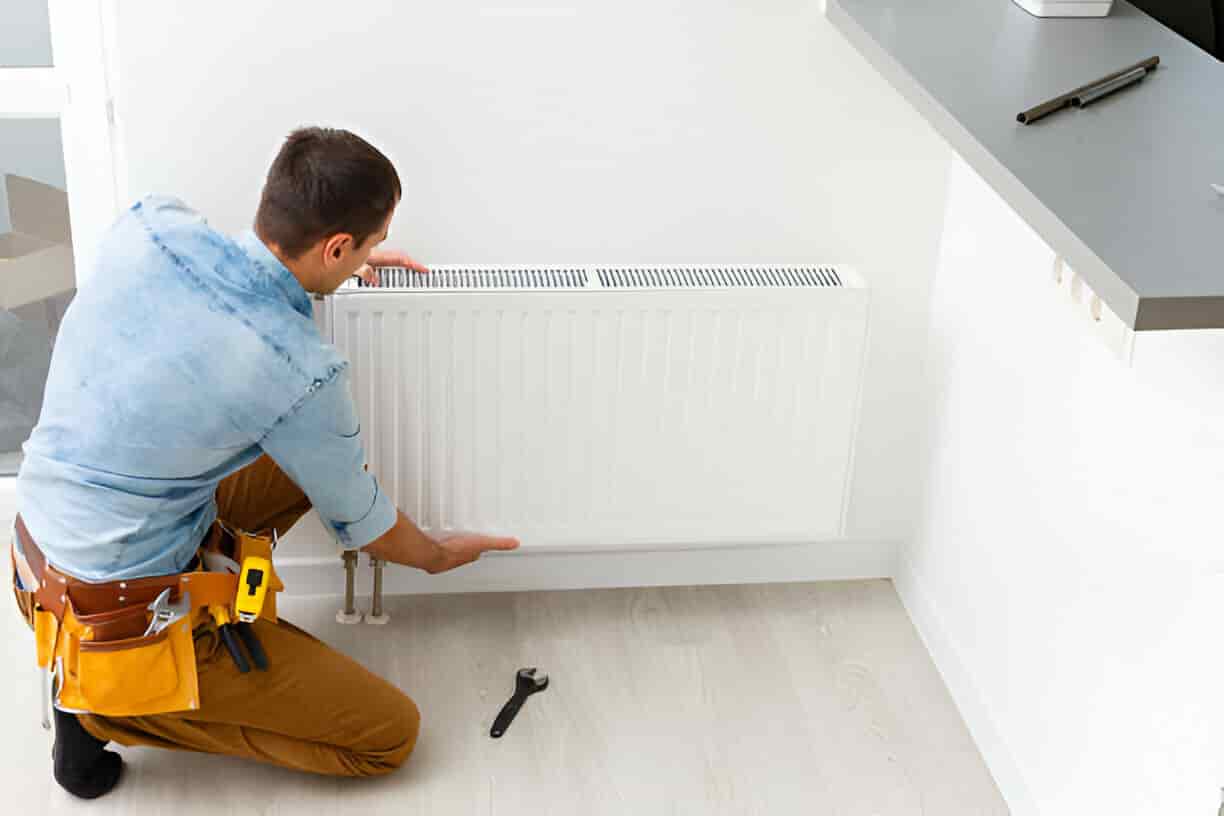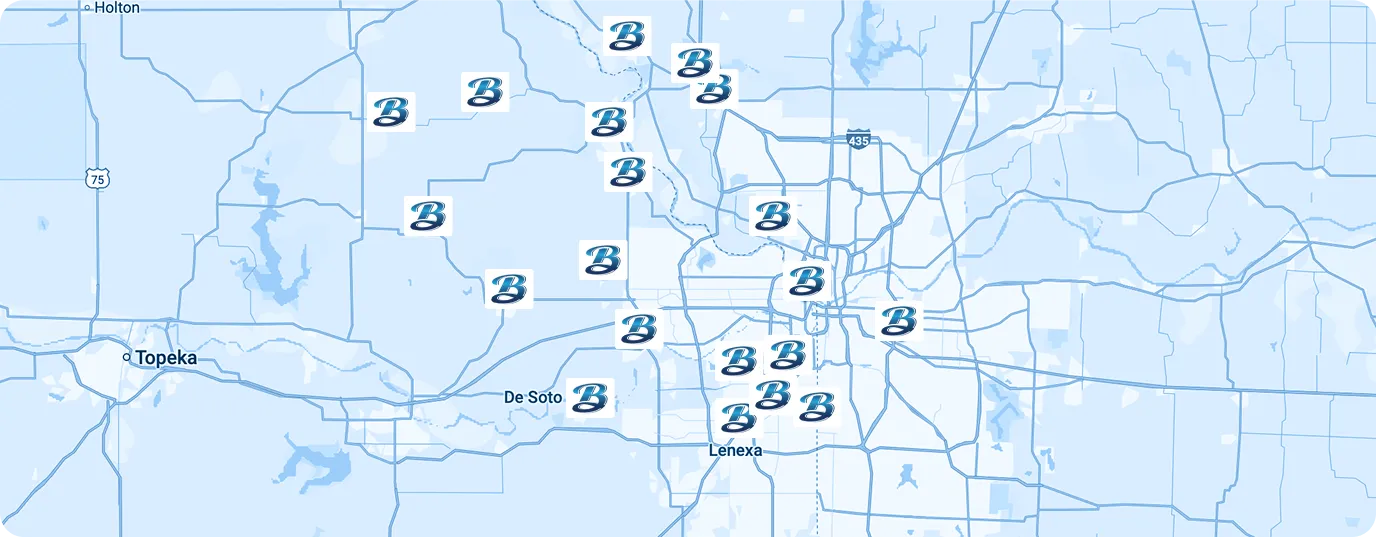Heating Tune-Up in Lansing, KS
Heating tune-ups in Lansing, KS are a high-value seasonal service that keeps furnaces and heat pumps safe, reliable, and efficient during harsh winters. The checklist covers inspections, filtration, safety tests, thermostat calibration, venting and combustion checks, electrical safety, airflow optimization, and performance verification, followed by a clear homeowner report with recommendations. Regular maintenance improves reliability, efficiency, and equipment life while reducing emergency repairs and energy costs. Scheduling guidance emphasizes annual fall visits, with additional checks for older or high-use systems.
Heating Tune-Up in Lansing, KS
A seasonal heating tune-up is one of the simplest, highest-value steps Lansing homeowners can take to keep a furnace or heat pump running safely, reliably, and efficiently through Kansas winters. With cold snaps, wind-driven heat loss, and wide temperature swings between seasons, a professional tune-up reduces breakdown risk when you need heat most, improves comfort throughout your home, and helps systems run more efficiently - saving energy and extending equipment life.
Common heating issues in Lansing homes
Lansing-area systems face a few local stressors that make routine tune-ups especially important:
- Colder winters and quick temperature drops that push systems to run longer and harder.
- Dust, pollen, and seasonal debris that accumulate in filters, ducts, and outdoor components.
- Older homes in the region with aging ductwork, leaks, or restrictive vents that reduce airflow.
- Occasional rodent or pest intrusion into attics and crawlspaces that can damage wiring, insulation, or venting.Addressing these issues proactively is the core purpose of a thorough heating tune-up.
What a complete Heating Tune-up in Lansing, KS includes
A professional seasonal tune-up follows a checklist of tasks designed to identify current problems and prevent future failures. Key items include:
- Visual inspection and basic cleaning
- Remove dust and debris from accessible components, blower housing, and condensate lines.
- Clear space around the furnace or heat pump to allow proper airflow.
- Filter check and replacement guidance
- Inspect filters for dirt, recommend or install the correct replacement media, and advise on frequency based on household factors like pets or allergies.
- Safety and combustion inspection
- Inspect the heat exchanger for cracks or signs of stress.
- Verify safe combustion and test for carbon monoxide levels where applicable.
- Inspect gas lines, burners, and ignition systems for proper operation.
- Thermostat calibration and control checks
- Confirm thermostat accuracy and programming; recalibrate if the thermostat temperature does not match a reference thermometer.
- Check system response to thermostat commands and confirm appropriate cycles.
- Combustion efficiency and venting checks
- Test combustion performance (for gas systems) and examine flue and vent piping for blockages, corrosion, or improper slopes that can cause backdrafting.
- Inspect outdoor exhaust and intake terminations for obstructions.
- Electrical and safety controls
- Inspect wiring, electrical connections, and safety switches for wear or loose connections.
- Test limit switches, pressure switches, and other safety interlocks.
- Blower, belts, and airflow tuning
- Clean blower wheel, lubricate motors where applicable, and inspect belts for wear.
- Measure static pressure and airflow to identify restricted ducts or closed vents.
- Operational performance testing
- Measure temperature rise across the furnace or system output for proper performance.
- Run the system through a full cycle to monitor startup, operation, and shutdown behavior.
- Customer-facing report and recommendations
- Provide an easy-to-understand summary of findings, immediate concerns, and suggested next steps (repairs, parts replacement, or energy-saving upgrades).
Why regular tune-ups matter
Regular seasonal tune-ups deliver clear, measurable benefits:
- Improved reliability - Routine inspections catch worn parts and small problems before they cause an unexpected breakdown in freezing weather.
- Higher efficiency - Clean components, correct airflow, and calibrated controls help systems use less energy to maintain comfort.
- Longer equipment life - Addressing friction, dirt, and small electrical issues reduces wear and extends service life.
- Enhanced safety - Combustion, venting, and carbon monoxide checks reduce the risk of dangerous conditions in your home.
- Lower repair costs over time - Preventive maintenance reduces the likelihood of major failures that require costly replacements.
Recommended tune-up frequency for Lansing residents
- Annual fall tune-up: For most furnaces and heat pumps, one professional tune-up each fall before the heating season is the industry standard.
- Older or high-use systems: Homes with equipment older than 10–15 years, or systems that run continuously, may benefit from semiannual checks (fall and late winter/early spring).
- Heat pumps: Schedule a tune-up before the heavy-use season (late fall) and consider an additional inspection in spring if the unit also supports cooling. Scheduling seasonal service before the first hard freeze ensures the system is ready to go when temperatures drop.
Memberships, discounts, and seasonal promotions
Many homeowners find the best value through a maintenance membership or seasonal plan. Typical membership benefits available to Lansing-area homes include:
- Priority or preferred scheduling during peak season.
- Discounted rates on tune-ups and repairs.
- Annual or seasonal reminders so maintenance is done at the optimal time.
- Extended safety checks and performance testing included as part of the membership package. Memberships reduce the hassle of remembering annual service and often make preventive care more cost-effective over the life of the equipment.
What to expect during a service visit
A professional tune-up visit usually follows a consistent process:
- Technician confirms system model and recent operating history.
- Safety precautions and protective measures are taken before work begins.
- The checklist items above are completed, including operational testing and safety measurements.
- The technician reviews findings in plain language, explains any recommended repairs or adjustments, and documents work performed. Homeowners in Lansing often appreciate a clear inspection summary that explains energy-saving opportunities, like thermostat upgrades or duct sealing, tailored to older local homes or houses with specific comfort complaints.
Simple homeowner maintenance tips between tune-ups
While professional tune-ups are essential, homeowners can improve performance with a few simple habits:
- Replace or clean filters every 1–3 months during heavy use.
- Keep vents and returns unobstructed and ensure furniture does not block airflow.
- Maintain clear outdoor unit access in the spring and fall; remove leaves, snow, and debris.
- Test carbon monoxide detectors monthly and replace batteries as needed.
- Seal noticeable duct leaks and add insulation where heat loss is evident.
Regular heating tune-ups are a smart, practical investment for Lansing, KS households. They improve safety, comfort, and efficiency while reducing the chance of costly winter breakdowns. A consistent seasonal maintenance routine tailored to local climate and home conditions helps systems perform their best when it matters most.









